|
|
|
|
It’s been months since a story about COVID-19 vaccines appeared in this space, but the coronavirus and its variants are very much back in the news. Immunologists and regular contributors Prakash Nagarkatti and Mitzi Nagarkatti from the University of South Carolina provide a timely and helpful explanation of what we all need to know about the latest vaccines, which will be available later this week and have been updated to protect against the BA.2.86 variant, nicknamed Pirola. More than two years
after the first COVID-19 vaccines came out, they write, “it has become very clear that vaccines against COVID-19 do not provide 100% protection against catching a new COVID-19 infection, but they can make illness from the infection milder, shorter or both.”
The devastating earthquake that struck Morocco Friday night, which has led to at least 2,900 deaths, came in a region not known to be very seismologically active. Geologist Jaime Toro from the University of West Virginia explains why some seismic zones tend to have more activity than others, and provides an excellent general explanation of how the movement of tectonic plates causes earthquakes. Meanwhile, this story, by University of Washington seismology and
geohazard expert Harold Tobin, explains why scientists cannot predict accurately when an earthquake will occur but can recognize areas that are at greatest risk and the status of early warning systems.
The popular generative artificial intelligence tool ChatGPT has been called a “black box” because outsiders can’t inspect the sources of data that feed its massive model or the algorithms that power it – not in fine detail, anyway. Obscuring the inner workings of AI systems of all kinds – whether it’s autonomous vehicles or bots that write code – creates a fundamental problem of trust, writes cybersecurity and data science expert Mark Bailey. His story covers some of the general concerns around the burgeoning uses of AI and whether they can be aligned effectively with people’s expectations.
Also in this week’s science news:
If there’s a subject you’d like our team of science editors to investigate, please reply to this email.
|

|
Martin LaMonica
Director of Editorial Projects and Newsletters
|
|
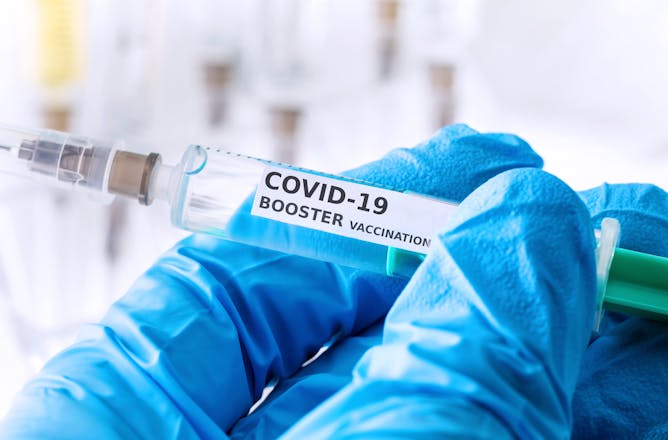
The CDC expects the updated shots to be effective at preventing severe COVID-19, even in the face of new variants.
Teka77/iStock via Getty Images Plus
Prakash Nagarkatti, University of South Carolina; Mitzi Nagarkatti, University of South Carolina
Only time and data will tell whether the CDC-recommended reformulated shots can stand their ground against the ever-changing SARS-CoV-2 variants.
|
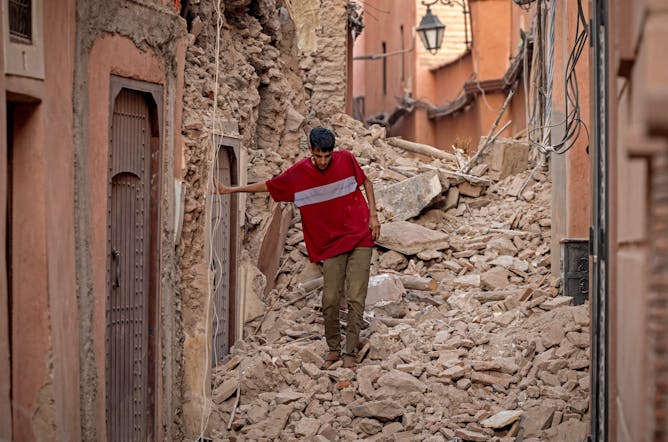
A man works his way through the rubble of buildings in Marrakesh, Morocco, after a magnitude 6.8 earthquake on Sept. 8, 2023.
Fadel Senna/AFP via Getty Images
Jaime Toro, West Virginia University
A geologist explains where earthquakes are most common and why.
|
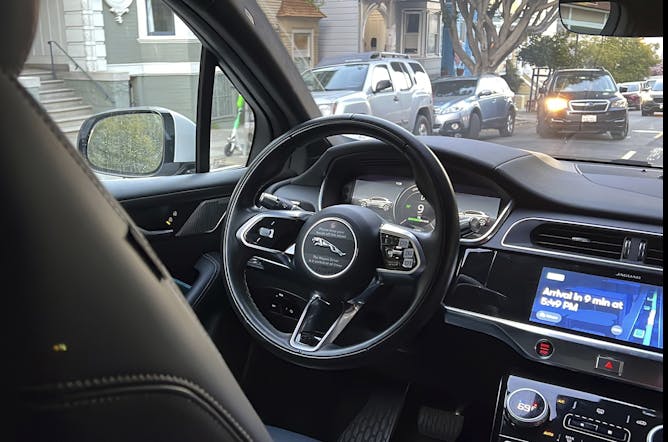
Do you trust AI systems, like this driverless taxi, to behave the way you expect them to?
AP Photo/Terry Chea
Mark Bailey, National Intelligence University
People can trust each other because they understand how the human mind works, can predict people’s behavior, and assume that most people have a moral sense. None of these things are true of AI.
|
|
|
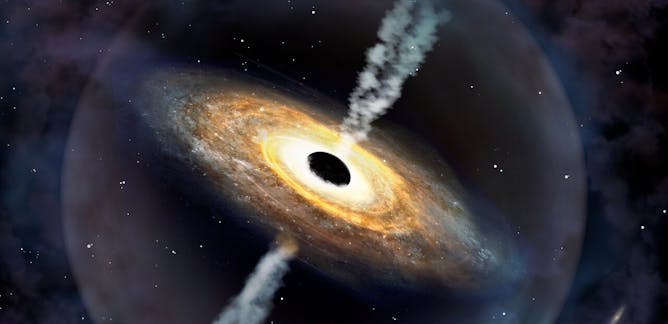
Jaclyn Champagne, University of Arizona
An astronomer and ‘black hole historian’ explains how the parts of the universe black holes grow in might influence how quickly they become bright, supermassive objects.
| |
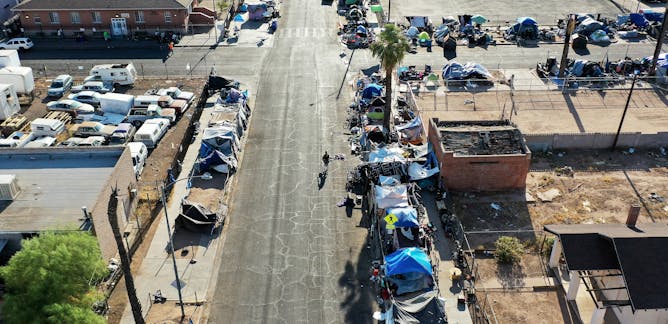
Natalie Florence, Arizona State University; Heather Ross, Arizona State University
As US cities struggle to reduce homelessness, two scholars explain how planners can reform shelter design to be more humane and to prioritize mental health and well-being.
|
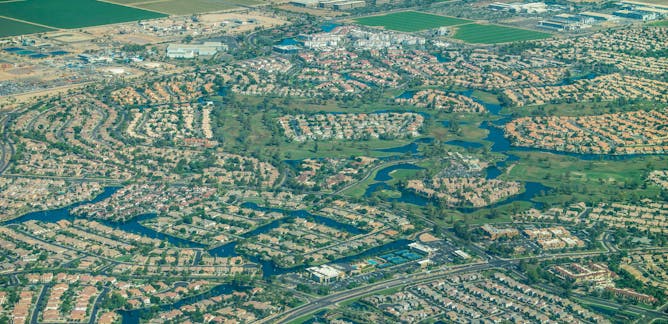
Gabriel Eckstein, Texas A&M University; Clive Lipchin, Tel Aviv University; Sharon B. Megdal, University of Arizona
Arizona is considering a multibillion-dollar desalination project to address its urgent water needs. Three water experts call for a go-slow approach and point to Israel as a role model.
| |
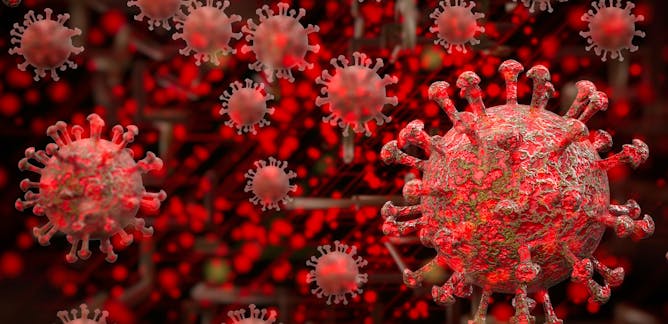
Suresh V. Kuchipudi, University of Pittsburgh
Researchers still don’t know how well BA.2.86 will evade immunity or whether it will cause more severe disease than its predecessors.
|
|
|
|
|
-
Harold Tobin, University of Washington
The idea that scientists could warn a region that a big quake was coming at a certain time – with enough advance notice for large-scale preparation and evacuation – remains a dream, not a reality.
-
Theresa Pistochini, University of California, Davis
Heat pumps can be 400% more efficient than a gas furnace.
-
Genny Carrillo, Texas A&M University; Taehyun Roh, Texas A&M University
Researchers found that children exposed to secondhand smoke had higher than average levels of lead in their blood.
-
Scott Denning, Colorado State University
There’s nothing normal about the blast furnace heat much of the world has been experiencing, as an atmospheric scientist explains.
-
Kristin Omberg, Pacific Northwest National Laboratory
Nanoparticles have contributed to profound medical advances like the COVID-19 vaccine, but without oversight, they pose ethical and environmental issues.
|
|
|
| | |
| | |
| |
| |
| |
|
|
|